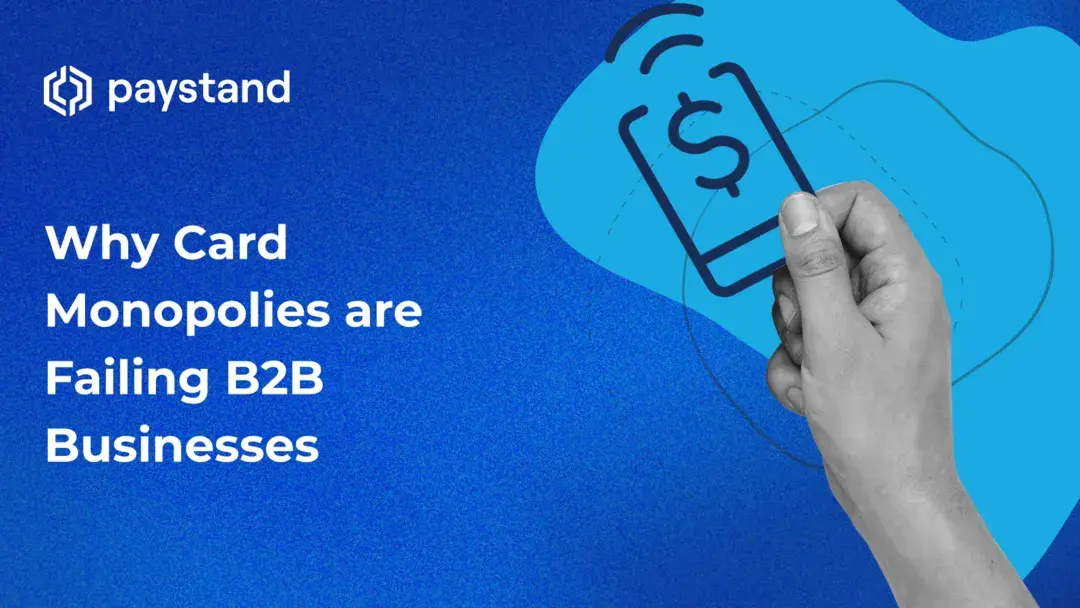Why Card Monopolies are Failing B2B Businesses

Credit card fees can significantly impact businesses, especially those with high transaction volumes. Passing the fees on to consumers increases costs while absorbing them reduces profit margins. It's time to rethink outdated credit card processes.
If the last couple of years have taught us anything, change is inevitable. Predicting global pandemics or the financial implications of profound political changes worldwide is impossible, so adapting to change is imperative.
This is particularly relevant when we look at the rise of Mastercard's interchange fees for EU firms selling to UK customers by at least 400%. Yet, Mastercard made this decision due to the UK leaving the EEA and adapting interchange rates on UK cards to the commitments made by the European Commission in 2019 for non-EEA transactions.
What are Average Credit Card Processing Fees?
Mastercard's interchange fees were 0.3% on credit card payments and 0.2% on debit payments in 2021 but increased to 1.5% and 2.6%, respectively. While some argue these changes only add a few cents to every transaction, this is significant for companies processing a high volume of transactions.
The question remaining is: who will cover the fee? And there is no easy way to answer this.
If the companies choose to pass on the fee, the consumer will face higher costs. If businesses decide to absorb it, their profit margin will be seriously diminished. If there's no simple solution for merchants or clients, who's to win these increases? Banks and card monopolies.
Why are Credit Card Fees Higher for B2B Than for B2C?
The lack of regulations makes B2B companies vulnerable since their transaction volume makes them one of the most affected by interchange fees. In retail alone, companies pay more than $100 billion to these card networks to accept electronic payments. But the problem lies deeper in the banking infrastructure and credit card companies' outdated processes.
Credit cards have been around for over 50 years. They were initially created to extend the payment terms for department store customers, bank loans, and other purposes. Then, corporate cards allowed businesses to transact across different banking systems. This quickly made them one of the preferred payment methods by B2B.
But while credit cards offer some convenience for paying, it comes at a steep price with cash flow and revenue implications. Imagine spending the 2.5% to 4% fees on a $50,000 invoice. For this reason, credit cards can be costly for B2B companies, especially when the margins are thin and 2.5% to 4% matters.
How can Businesses Avoid Paying Credit Card Fees?
Businesses shouldn't have to spend money to get money. A model counting on gatekeepers who profit from charging fees to move money is outdated and harms B2B companies fighting to survive.
It's time for a fair and secure way to conduct B2B payments, where merchants can predict how their money is being processed without fees.
A digital-first approach to commercial payments solution is becoming a sustainable alternative to legacy payments. It understands the real needs of digital business: security, resource optimization, and practicality.
We're on a mission to reboot commercial finances with diverse digital banking products to create a new financial ecosystem in the B2B realm that finally leaves fees and paper behind. We call it the Journey to Zero.
Join us in rebooting commercial finance
Over 200,000 businesses in the US are now transacting using the Paystand Bank Network and saving millions in fees and process optimization. If you want to know how our products can help you streamline resources and create a better revenue strategy, request a demo with one of our payment experts today.





